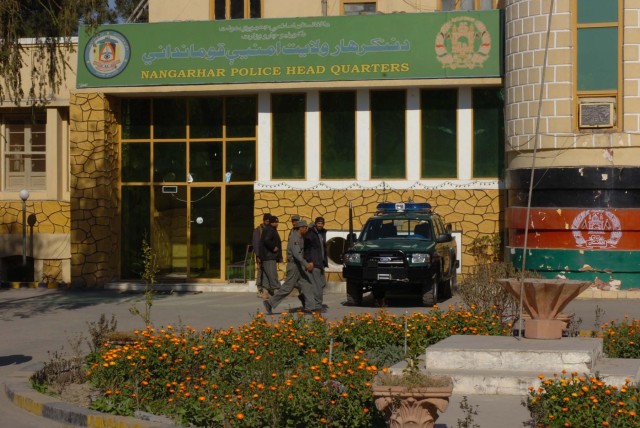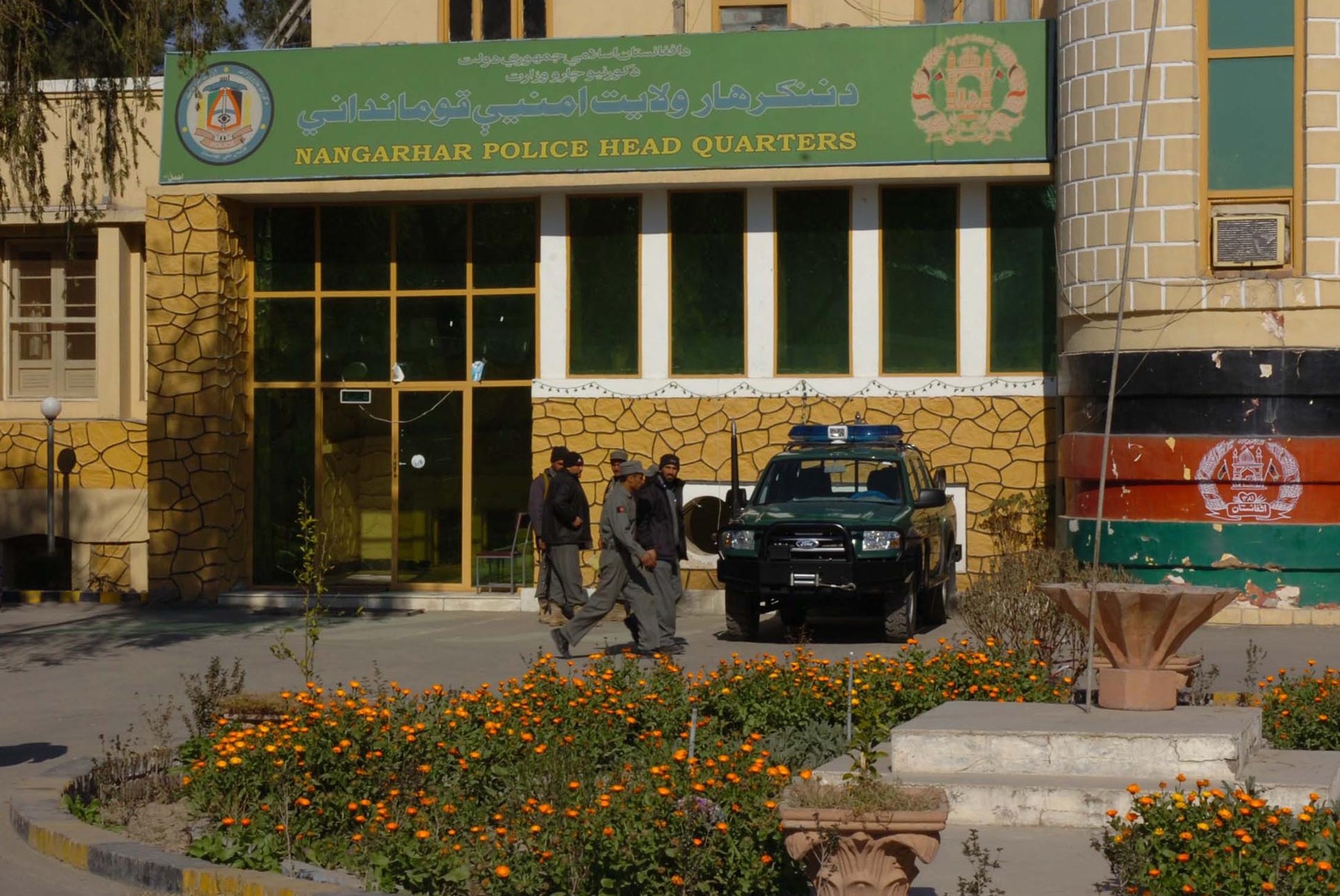
NANGARHAR PROVINCE, Afghanistan (Jan. 29, 2008) -- Every week Nangarhar law enforcement representatives and Task Force Raptor Soldiers meet at the Joint Provincial Coordination Center in Jalalabad to exchange information and discuss what they can do to better serve the citizens of the province.
The JPCC is a model in eastern Afghanistan for synchronizing the efforts of the U.S. forces, Afghan National Police, Afghan Border Police, Afghan National Army and emergency fire and medical services.
Recently the JPCC launched a 911-like emergency number. The 100 number offers quick access to emergency responders 24 hours a day.
"They dial three numbers and they can talk to the ANP," said 1st Lt. Jeff Reed, JPCC officer-in-charge, who is assigned to U.S. Army Europe's Headquarters and Headquarters Company, 173rd Special Troops Battalion.
"If they need to talk to anybody; if there is anything going on, from this center they can dispatch fire trucks ... ambulances, police patrols, or they can just ask questions," said Reed.
The JPCC averages 25-50 calls to the 100 number each day. Some days that number surpasses 100. For now, the majority of the calls are to check and see if the number actually works. It does. ANP respond to an average of 10 percent of the emergency calls.
The program is yet another step forward in the progress of Afghanistan according to Lt. Col. Jeffrey Milhorn, the 173rd STB and TF Raptor commander.
"Generally, the people are now securing themselves," said Milhorn. "They now have a communications network established that they can tie back to the JPCC immediately and get a relatively rapid response."
As with any new program, there have been obstacles that had to be overcome, said Staff Sgt. Michael Roth of HHC, 173rd STB, the JPCC NCO-in-charge.
"The initial problems were dealing with the different phone carriers -- Roshan, AWCC, etc. Now they have lines for everybody regardless of whatever phone carrier the people are using," said Roth. "They can call in and make contact."
There are also some minor annoyances to overcome, noted ANP Maj. Abdul Gadim.
"People crank call because the number is free. Many calls are not emergencies," said Gadim. Still, Gadim said he is impressed with the success of the program.
"It's fantastic! It's great. If there's a problem we can jump on it and help the people."

Social Sharing